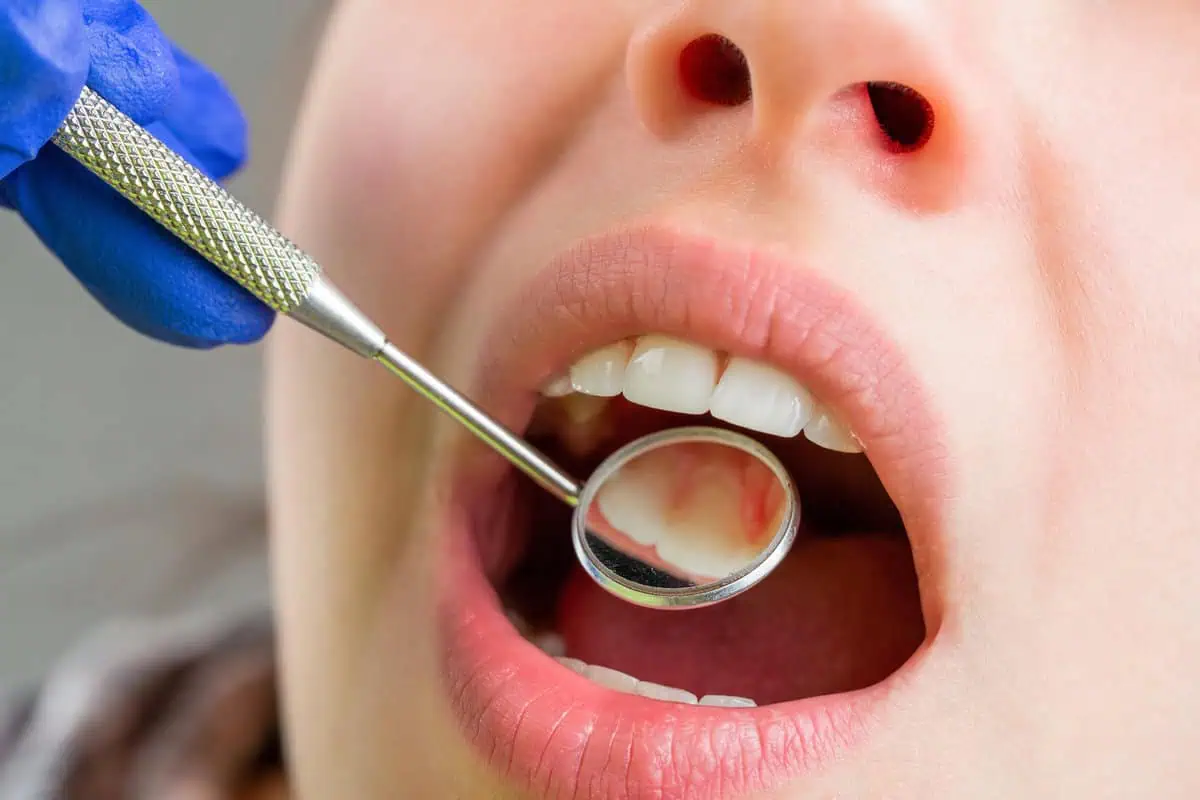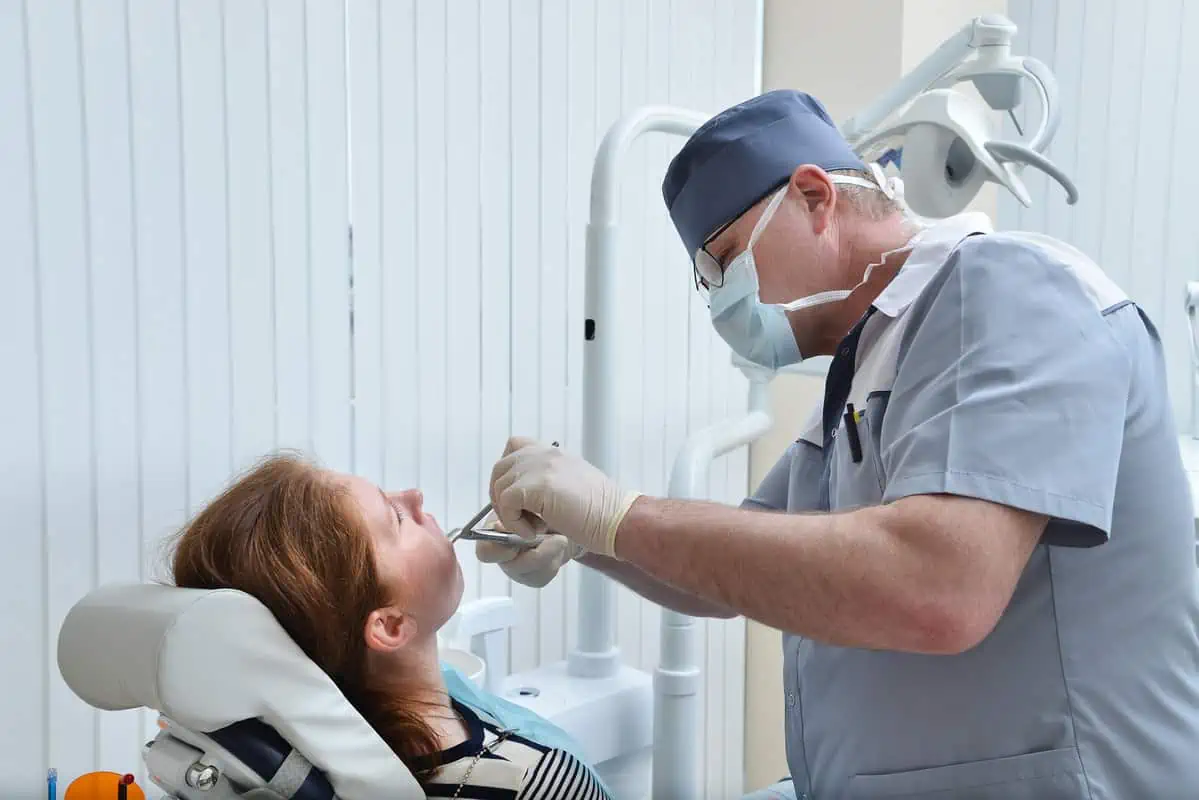A dental crown, or dental cap, is a prosthetic tooth-like structure placed over a damaged or decayed tooth to restore its shape, strength, and appearance. Dental crowns are commonly used in various dental procedures to repair and protect teeth that are extensively decayed, cracked, or weakened. This blog will delve into how dental crowns work and provide a comprehensive understanding of the procedure.
What are dental crowns?
Dental crowns are custom-made prosthetic teeth used to restore the appearance of a tooth that has been damaged. They are designed to fit over the whole visible part of the tooth. They are typically made from porcelain, metal, or both.
Dental crowns are shaped like natural teeth and are placed over the damaged tooth to provide protection, stability, and aesthetic improvement. They are cemented onto the tooth structure, covering it entirely, and are used to restore the tooth’s shape, size, and strength. Dental crowns can be used on both primary teeth (baby teeth) and permanent teeth, depending on the patient’s age and dental needs.
Reasons for needing dental crowns
There are several reasons why a person may need a dental crown. Some of the common causes include:
a. Tooth decay: When the tooth is decayed and cannot be restored with a filling, a dental crown may be needed to cover and protect the remaining tooth structure.
b. Cracked or fractured tooth: Teeth that are cracked or fractured may require dental crowns to prevent further damage and restore strength.
c. Root canal treatment: Teeth that have undergone root canal treatment may become weak and brittle and require dental crowns to provide strength and stability.
d. Cosmetic purposes: Dental crowns can also be used for cosmetic purposes, such as improving the appearance of misshapen or discolored teeth.
e. Tooth replacement: Dental crowns can also be used with dental implants or dental bridges to replace missing teeth.
Types of dental crowns
There are several types of dental crowns, each with unique advantages and disadvantages. The common types of dental crowns include:
a. Porcelain crowns: Porcelain crowns are made from a type of dental ceramic that closely resembles the natural color and transparency of teeth, making them an ideal option for restoring front teeth. They are highly aesthetic and can provide a natural-looking appearance.
b. Metal crowns: Metal crowns are made from various metal alloys, such as gold or silver. They are known for their durability and strength and are typically used for restoring teeth that require significant biting force.
c. Porcelain-fused-to-metal (PFM) crowns: PFM crowns are made by fusing a layer of porcelain to a metal substructure. They offer a combination of strength and aesthetics, with the metal providing stability and the porcelain providing a natural appearance.
d. All-ceramic crowns: All-ceramic crowns are made entirely from dental ceramics and do not contain any metal. They are highly aesthetic and provide a natural-looking appearance. They are a popular choice for patients with metal allergies.
e. Zirconia crowns: Zirconia crowns are made from zirconium dioxide, a type of dental ceramic known for its strength and durability. They are not more prone to chipping or cracking than other types of crowns, making them suitable for patients requiring high strength and durability.
Procedure for getting dental crowns
The procedure for getting dental crowns typically involves several steps and may require multiple visits to the dentist. The steps involved in the dental crown procedure are as follows:
a. Examination and preparation: The dentist will first examine the tooth that needs a crown and may take X-rays to assess the extent of the damage. If the tooth is decayed or weakened, the dentist will need to prepare the tooth by removing the worn or damaged portion and shaping the tooth to create space for the crown. This may involve trimming down the tooth’s size and shape to ensure a proper fit for the height.
b. Impressions: After the tooth is prepared, the dentist will take impressions of the tooth and the surrounding teeth. These impressions create a custom-made crown that fits perfectly over the prepared tooth.
c. Temporary crown: While the permanent crown is being fabricated in a dental laboratory, the dentist may place a temporary crown over the prepared tooth to protect it from further damage and maintain its function and appearance.
d. Crown placement: Once the permanent crown is ready, the dentist will remove the temporary crown and carefully place the permanent crown over the prepared tooth. The dentist will check the crown’s fit, bite, and appearance and make any necessary adjustments before cementing the crown in place.
e. Final adjustments and polishing: After the crown is cemented, the dentist will make any final adjustments to ensure a proper bite and occlusion. The crown may also be polished to provide a smooth and natural-looking appearance.
Caring for dental crowns
Proper care and maintenance are vital to ensure the longevity and functionality of dental crowns. Here are some tips for caring for dental crowns:
a. Maintain good oral hygiene: Brush your teeth at least twice daily and floss daily, including around the crown area, to remove plaque and prevent gum disease.
b. Avoid hard or sticky foods: Dental crowns are strong but can still chip or crack with excessive force. Avoid biting down on complex objects, such as ice or candies, and avoid sticky foods that may pull on the crown.
c. Wear a mouthguard: If you grind or clench your teeth at night or engage in collision sports, wear a mouthguard to protect your dental crowns from damage.
d. Visit your dentist regularly: Regular dental check-ups and professional cleanings are essential to monitor your dental crowns’ condition and ensure they function correctly.
e. Report any issues: If you experience pain or sensitivity, or notice any changes in the fit or appearance of your dental crown, report it to your dentist immediately for evaluation and possible adjustments.
Conclusion
Choosing a trusted and specialized dental practice is essential for dental crowns for children. Solomon Kids Dentistry is a renowned pediatric dental practice specializing in providing comprehensive dental care for children, including dental crowns. With a team of experienced and caring pediatric dentists, Solomon Kids Dentistry offers a child-friendly environment. It uses the latest techniques and technology to provide top-quality dental care for kids.
At Solomon Kids Dentistry, the dental crown procedure is performed with utmost care and attention to ensure the comfort and well-being of the child. The practice offers a range of dental crown options, including porcelain crowns, metal crowns, and zirconia crowns, depending on the child’s needs and preferences. The team at Solomon Kids Dentistry takes the time to explain the dental crown procedure to both the child and the parent, addressing any questions or concerns.
Choosing Solomon Kids Dentistry for your child’s dental crown needs ensures that your child receives the highest care from a team of experienced pediatric dentists. The practice prioritizes the comfort and well-being of children, using techniques and technologies specifically designed for kids. With a child-friendly environment, advanced dental equipment, and a compassionate approach, Solomon Kids Dentistry is ideal for your child’s dental needs.
In conclusion, dental crowns are an effective and commonly used dental treatment to restore the function and appearance of damaged teeth. Understanding the procedure for getting dental crowns, the different types of crowns available, and how to care for them is crucial for a successful outcome. Choosing a specialized pediatric dental practice like Solomon Kids Dentistry ensures your child receives the best care for their dental crown needs. Don’t hesitate to schedule an appointment with Solomon Kids Dentistry and give your child the gift of a healthy and beautiful smile!





